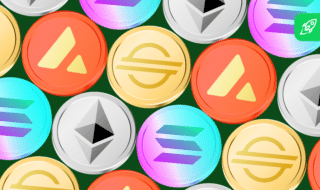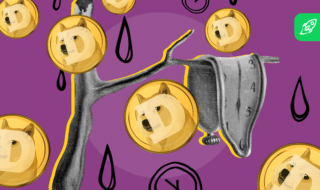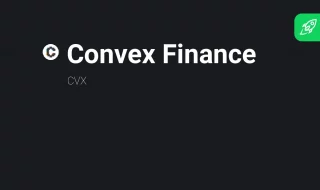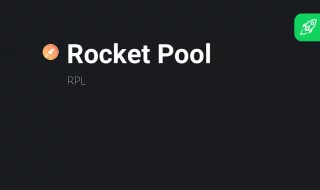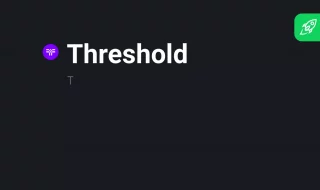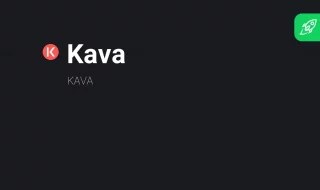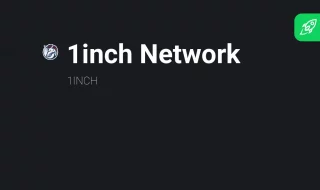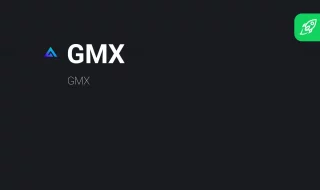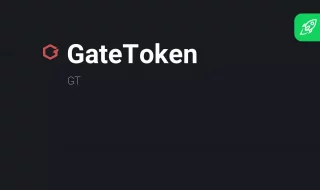Trading is one of the high-risk and high-reward ways to make money. Crypto trading is no exception to this, with the only difference being that traders deal in cryptocurrencies instead of fiat or other assets. While it may seem terribly confusing to newcomers, it can offer a lot to those willing to learn its secrets. Here, we compiled a bit of basic advice for people who want to delve into this profitable market.
Table of Contents
Fiat to Crypto
To start off, you need to have some cryptocurrency. There are lots of options that will allow you to gain it. The most widely known is mining. It also takes a lot of time, effort, and money to receive even one reward block, especially in BTC. Exchange platforms exist to help people who want to have some crypto without mining. Coinbase, Bitfinex, Bitmex, Huobi, and Changelly are but a few of them. On Changelly, you can swap your fiat currency right from your debit card for any listed crypto (there are more than 150+ of them). What’s even better, there is no need to provide an ID, just your crypto wallet number.
How to Start
Now, that you have enough crypto to trade, you can move onto the trading platform of your choice. They all work on the same principle as choosing a trading platform for any other asset. Many exchange platforms now allow crypto trading, like Binance and Bitfinex. If you decide to use them, it will make it easier for you to refill your deposit should you need to. It might be better to enter a separate trading platform so that you could diversify your resume later on.
- Coinbase: one of the most popular and user-friendly platforms on the market. It allows users to buy crypto for fiat currency. Offers a varying amount of trading pairs, depending on your location.
- Binance: this Malta-based exchange offers its traders more than 200 trading pairs, handily beating almost every other crypto trading platform.
- Bittrex: a good platform for beginner traders, Bittrex has been around since 2013 and offers great security, support, and trading possibilities.
- Bitfinex: it has a lot to offer not only to crypto-to-crypto traders but also to those willing to trade for fiat money. Currently, Bitfinex offers trading pairs in USD, EUR, GBP, and JPY.
- BitMEX: this trading platform is run by professional algo traders. It is one of the busiest on the market. While it may be confusing for beginners, experienced traders will find all they need here.
After you’ve found a place where you will trade, it is time to enter trading properly. First, you will need to create a new account. In most cases, it will require you to fill out your name, country, and the wallet number.
You will need to have an established wallet to replenish your trading account. Most trading platforms allow you to store your crypto on there, but you can also choose a separate wallet. Depending on the crypto you’ve chosen, there are various wallets available. You can find more about your options on our blog, in our Best Cryptocurrency wallets list.
With the wallet chosen, a serious step comes in setting up your trading account: whether or not your platform has KYC. KYC is deciphered as ‘know your customer’ and basically means that you will need to prove your identity before you can trade. Usually, it requires you to provide an ID (or a similar identity-proving document, like a driver’s license) and make a selfie to prove that you are you. Most trading platforms have that as a mandatory step, though you can always find one that has no such requirements should you wish to trade anonymously.
How to Protect Your Cryptocurrency
While the crypto world offers anonymity and security, it also provides a lot of opportunities for criminals to scam you. Without proper security steps, you are always at risk to lose your hard-earned coins, so let’s talk about how you can avoid that.
- Verify services before using them. There are lots of resources that offer to store your coins. Most of them are scams, luring you with false promises. Before you choose a service, read up about it on trusted services and social media (like Reddit) to get a clearer picture.
- Don’t put all your eggs (cryptos) in one basket. This, while making it easier for you to access your coins, runs the risk of you losing it all at once. So to minimize possible losses, it stores your crypto on a few different wallets. If something happens, you will lose the contents of only one wallet and not all of your crypto.
- Store and backup your security codes. While they are a great way to keep your wallet safe from everyone, you will not be able to access it either should you forget the private key and seed phrase. So, keep them in a secure location separate from a backup, just in case.
- Keep a low profile. While it might be tempting to process a large trade and brag about it on social media, it also puts you into criminals’ crosshair. Keep it down, conduct smaller trades, and this will make it less likely for them to target you.
- Use trusted networks. This one should be obvious: trading on a public network is a big security risk. Doing anything sensitive on a public network risks getting malware, and it is one risk too many if you are dealing with money.
How to Use Trade Bots
Trade bots are tools to automate your trading, increasing its efficiency and profitability. Even with its basic settings, it will work well enough, but to make it better you will need to fine-tune it correctly.
You need to choose the bot that suits you the best. After you’ve installed it successfully, it is time to set up your strategy. Depending on the bot in question, it may vary from choosing one from the already prescription list to writing the algorithm yourself. So, if you don’t want to code by yourself, you’d need to pick the bot that has strategies scripted in. After that, the bot is generally ready to run and trade.
There are many available on the market, and you can actually write one yourself should you not find one that you like. For those who don’t want to do so, however, we will take a look at our list of ready bots that you can use.
- Cryptohopper

One of the most popular trading bots, and for a good reason, Cryptohopper is one of the few cloud-based bots out there, allowing it to keep trading even when the computer is off. It is also user-friendly, so new users can easily pick it up. At the same time, experienced traders can modify Cryptohopper to their tastes.
Start with Cryptohopper.
- 3Commas

3Commas is a smart trading bot, able to adapt to sudden changes on a market. This alone assures its popularity, but other features, like neat interface, automatic trade, online hosting, and various exchange integrations make the deal even sweeter.
Start with 3Commas.
- Kryll.io

This trading bot comes with features that allow users to take advantage of a volatile crypto market and a flexible editor so that they could add even more. Linking logical operators, market indicators, and value triggers never was so easy.
Start with Kryll.io.
- Zignaly

Zygnaly is a relative newcomer to the trading bots scene. Nevertheless, it managed to gain recognition and trust from the market easily. For now, it works on the Binance exchange and offers some unique features, like no limit on trading pairs to use and an option to edit trading position at any time.
Start with Zignaly.
- Gunbot

This bot comes with various inbuilt trading strategies, which allows novice traders to use them without any coding. While in other aspects it is pretty standard in regards to other bots, Gunboat also allows paying for it in Bitcoin, with 3 subscription plans available.
Start with Gunbot.
- TradeSanta

Another cloud-based bot, TradeSanta allows its users to take advantage of market fluctuations. It is easy to install, has a few inbuilt templates, and allows you to use different exchanges with it. The minimal subscription plan is free and allows you to use all strategies, only limiting the trading volume.
Start with TradeSanta.
Summary
You’ve got everything you need to start trading crypto. Now you know how to choose a wallet, where to trade and how to create a new account on a trading platform. Not only that, but you can now increase your trading profits by using trading bots. With the right security, you will keep your gains safe and sound, increasing them as you go. We hope that this post was informative for you, and if you want to learn more, you can read other guides and advice posts on our blog. Stay tuned for more!

